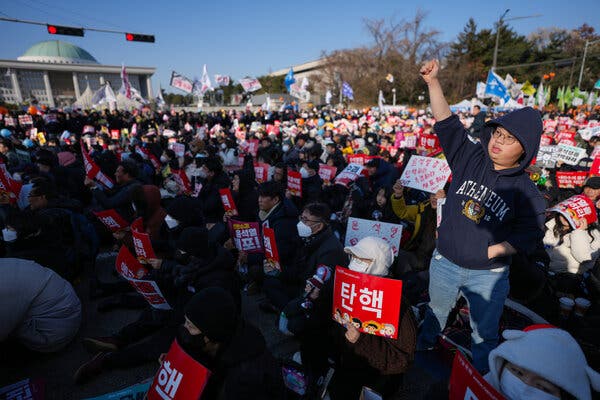Assurances from government officials on plans to strengthen the private sector offset a lack of specifics about economic stimulus.

Stock prices rose in China on Monday, as investors welcomed government signals of renewed attempts to counter weakness in the economy by borrowing more and easing oversight of the private sector.
The CSI 300, an index of large companies traded in Shanghai and Shenzhen, rose 1.9 percent.
The increase came despite another dour report on the economy the day before. China’s National Bureau of Statistics said on Sunday that prices charged by factories and other producers fell 2.8 percent in September compared with a year earlier. Monthly wholesale prices have experienced year-on-year declines for two straight years.
The index of consumer prices was up only 0.4 percent, less than expected, and fell for goods other than food.
Chronically low prices are one of the biggest problems facing China’s economy. They signal deflation and make it hard for indebted companies and households to earn enough money to repay loans.
Lan Fo’an, China’s finance minister, said on Saturday that the government would borrow more to help cash-short localities, stabilize the real estate market and put more money in the hands of state-owned banks. It was the latest in a string of moves and announcements in recent weeks to show that officials were aware of the struggles of the economy and the private sector.
Mr. Lan did not detail how much additional borrowing or spending the government was ready to commit to bolster weak domestic consumption, stabilize the real estate market and strengthen banks, however.
Luo Wen, director of the State Administration for Market Regulation, then promised at a news briefing on Monday that the government would not impose unreasonable fines on companies or take other measures that many businesspeople have said are holding them back. He took pains to counteract the widespread impression that the government favors state-owned enterprises.
The government will “treat the private economy equally and protect it equally, and create a good environment for the development of the nonpublic economy,” he said.
China’s consumer confidence has crumbled the past few years, never recovering from steep declines during the Covid-19 pandemic, and housing sales have fallen for the past two years.
China’s CSI 300 Index
As of the close of trading on Oct. 14, 2024.
Source: FactSet
By The New York Times
The country’s central bank and other financial regulators announced a series of measures to encourage bank lending on Sept. 24, including lower interest rates. At a meeting two days later, the ruling Communist Party Politburo ordered prompt action to steady the economy. The CSI 300 index has risen more than 20 percent since the initial measures were announced.
While China’s Communist Party wields absolute power over the country and the government, the standing committee of the national legislature must sign off on any overall increase in spending beyond what has already been approved. That committee is not expected to meet again until late this month.
Keith Bradsher is the Beijing bureau chief for The Times. He previously served as bureau chief in Shanghai, Hong Kong and Detroit and as a Washington correspondent. He has lived and reported in mainland China through the pandemic. More about Keith Bradsher
See more on: Shanghai Stock Exchange



